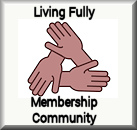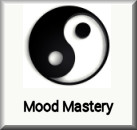It has been my experience that challenges in the sexual relationship of couples ebbs and flows over the life of the marriage. It can be connected to hormones, but most often is connected to the other intimacies in the relationship as well as the stage that the individuals and the marriage is in. I have been a therapist for a long enough time that I have seen the husband in the couple come in with complaints about his wife and her non interest in their sexual relationship and then 20 years later I have his wife in my office making complaints about his lack of interest in their sexual relationship. Remember that the goal of making love is to feel more connected with each other, to have fun and to be valued by each other. If you have been stuck here for a long time, it is likely that you will need some professional counselling. If you are experiencing one of those stuck periods in your sexual relationship that has otherwise been a good relationship, these hints might work for you.
1. Check out the other intimacies in your relationship such as your emotional intimacy. Check in with each other – are you understanding your partner? Do they feel understood by you? do you feel understood by them? Do they feel well loved by you and you by your partner? And what about the relationship intimacy. Are you keeping up with the friendship in your relationship? Does your partner know you? Do you spend quality time together developing your interests together? These intimacies are related to sexual intimacy and often an improvement in these intimacies will make a positive change in your sexual intimacy.
2. Check in with yourself. Have you been taking care of your part in the sexual relationship? For instance, women make love in their minds first. So do you take the time to begin the day with an end of the day lovemaking? During the day are you are thinking about what you love about your partner and do you prepare yourself with whatever scents, candles or whatever makes you ready to make love in the evening? Initiation towards making love is often a wish for it to be a shared thing between couples. Both males and females need to do their part.
3. Have a conversation with your partner where you talk about your sex life. How is the quantity of lovemaking in your partnership? How is the quality of your lovemaking? What might make it better for both of you? Most often, couples don’t actually have precise conversations about their sexual relationship. They tend to skirt around the issue. It is a vulnerable part of your relationship so you will want to be gentle in how you speak to your partner. For instance, rather then criticism where you would say, “you never touch me”, you would say, “when you kissed me the other day that made me feel especially connected to you and I would love it if you would do more of that”. You will want to let your partner know exactly how you feel during lovemaking and what could improve things for both of you, using more of this and perhaps less of that in your conversation.
Some common complaints that might be part of your conversation are: not enough foreplay. Women often need more foreplay in order to switch off from other roles and demands in the day. Sometimes there are complaints about starting the same way every time. Try a little variety, in your beginnings. Be a little more playful. Use your voice during lovemaking. As in other times in the relationship, your partner cannot read your mind. What kind of touch do you need at this time? If your body is not cooperating in lovemaking at any given time, you can still use the opportunity to focus on physically loving your partner. Talk about these challenges that others have and maybe you have too. Do something about the complaints and challenges today. A great book to read, even if you have been together for a long time is called, Intimacy & Desire: Awaken the Passion in Your Relationship by David Schnarch (May 1 2011) or the book I am more familiar with called, Passionate Marriage by David Schnarch (Mar 24 2009). Remember too, that according to research, the best sex happens in long term committed relationships. Go forth and be wonderful in this!






